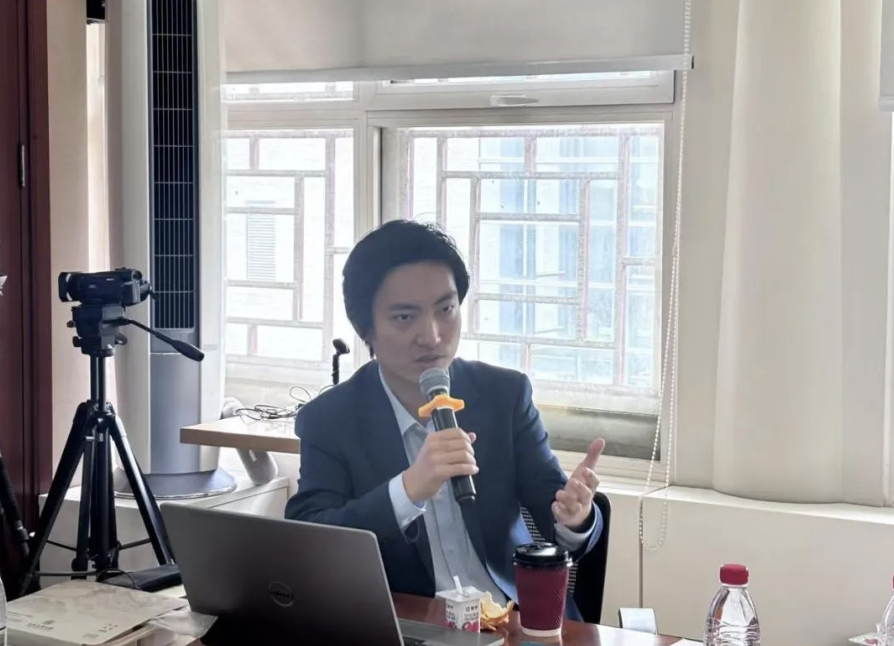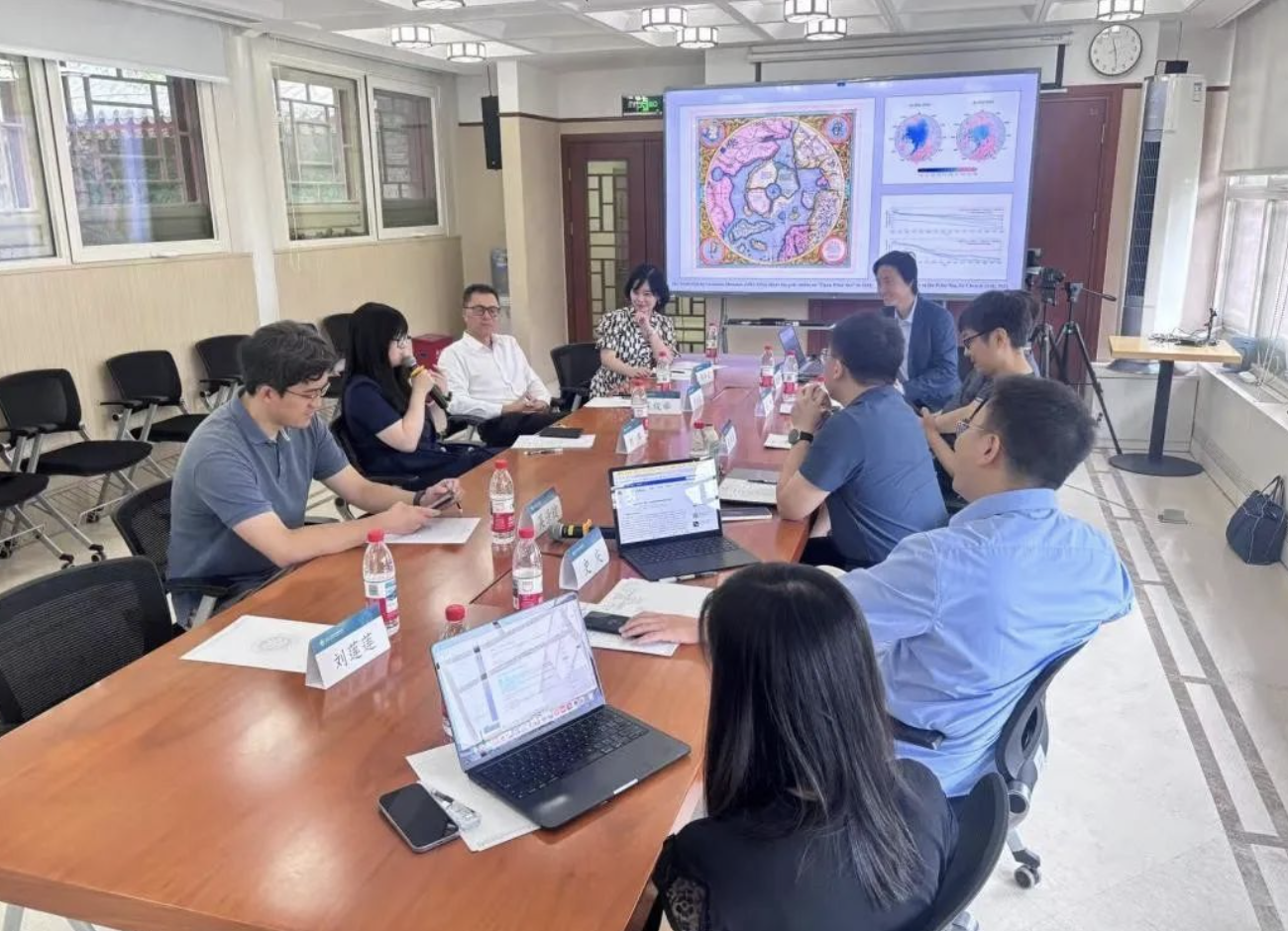
The 13th lecture of Youth Salon series hosted by the Institute of Area Studies, Peking University (PKUIAS), was held on June 26, 2025. Themed “Polar Oracles: Fridtjof Nansen’s Arctic International Thought,” the keynote speech was given by Li Hansong, an assistant professor at American University in Washington D.C., and a research fellow at Harvard University. Lai Huaxia, an assistant professor at PKU’s School of International Studies, moderated the event. Participants included Zhang Yongle, deputy director of PKUIAS; Zhang Wei, an associate research fellow at the Chinese Academy of Social Sciences; and Liu Lu, an assistant professor at PKU’s School of International Studies; Mei Hualong, an assistant professor at PKU’s School of Foreign Studies; Li Junyang, an associate research fellow at the Institute of World Economics and Politics, Chinese Academy of Social Sciences; postdoctoral fellows Lin Zhaoran and Wu Jingjian from PKU’s School of Law; and postdoctoral fellow Shi Qing from PKUIAS.
Li Hansong first outlined the origins of his research. Fridtjof Nansen was a true polymath—he explored the Arctic and represented the League of Nations in addressing refugee crises in Russia, Armenia, Turkey, and Greece—yet he himself has received little attention. Prof. Li conducted a series of studies on Nansen from such perspectives as intellectual history, international law, and international relations, exploring Nansen’s international ideology regarding the Arctic. Li argued that the Arctic, rapidly expanding due to melting glaciers and thawing permafrost, had become the focal point and frontier of “maritime geopolitics.” Revisiting Nansen’s intellectual world may offer an alternative theoretical framework for reflecting on the contemporary Arctic and the world, he said.
Prof. Li first revisited Nansen’s extensive Arctic expeditions, then argued that his fascination with Arctic exploration influenced his reflections on Nordic politics. Starting from the Arctic, Nansen gradually shifted his focus toward ethnocultural considerations while contemplating the redrawing of the world map. Alongside his naturalistic inquiries, his attention increasingly turned to indigenous peoples. During the League of Nations era, Nansen went further, advocating not only building bridges but also “burning bridges”—calling for the dismantling of neo-imperialism disguised as nation-states. Li Hansong contended that this marked Nansen’s primary transition into the realms of international law, international relations, and global justice.

During the discussion session, Zhang Yongle offered commentary from three perspectives: (1) Nansen’s unique understanding of global order originated from his perspective on Arctic spatial dynamics; (2) Nansen’s sympathy toward indigenous peoples remained confined within the framework of civilizational hierarchy theory; (3) The debate over whether the Arctic Ocean constitutes an ice cap or a body of water evokes the historical dispute between Hugo Grotius and John Selden regarding whether oceans are free or enclosed, rooted in differing experiences of winter ice conditions across maritime regions.
Zhang Wei emphasized the critical importance of Arctic research, encouraging students to explore Conan Doyle’s work and uncover connections among naturalist writers.
Mei Hualong engaged in thorough discussion with Li Hansong on the definition of indigenous peoples, drawing from his own research.
Liu Lu, reflecting on her criminology research, proposed expanding existing studies to include an examination of Nansen’s personal characteristics.
Li Junyang emphasized the importance of discussing Nansen’s contributions to international norms in today’s highly specialized academic landscape. She further discussed with Li Hansong the influence of the Arctic perspective on Nansen’s international humanitarian outlook and the tension between the national and international dimensions in his thought.
Shi Qing proposed that it was meaningful to map Nansen’s intellectual spectrum from an intellectual history perspective, exploring his vision for the Arctic Ocean and his division schemes. Simultaneously, examining potential Arctic Ocean zoning schemes from an institutional perspective holds significant importance for the development of domestic enterprises, he said.
Lin Zhaoran noted that although Nansen held differing attitudes regarding the relationship between property rights and sovereignty due to influences from French and German natural law thought, he remained within the extended framework of 19th-century civilizational hierarchy discourse. Furthermore, indigenous peoples possess distinct institutional and discursive contexts across different nations and settings, necessitating continued attention to the tension between universal scientific knowledge and traditional knowledge.
Wu Jingjian engaged in a discussion with Li Hansong on two aspects: the evolution of Arctic imagery within contemporary Chinese discourse and how the Arctic can secure the attention it deserves in the future.
Lai Huaxia noted that Nansen, living in the late 19th century, which featured the rise of nation-states, put forward perspectives of profound international significance. Yet today’s discourse remains largely confined within the framework of international law. Therefore, she said, current actions, potential changes, and what contemporary education should prioritize still need to be further reflected on.


